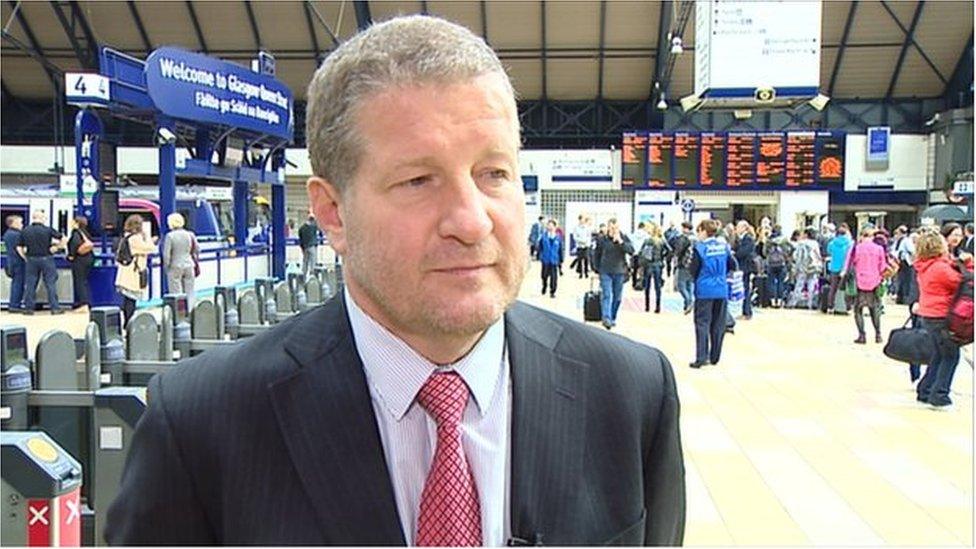Timeline: Phil Verster and ScotRail
- Published
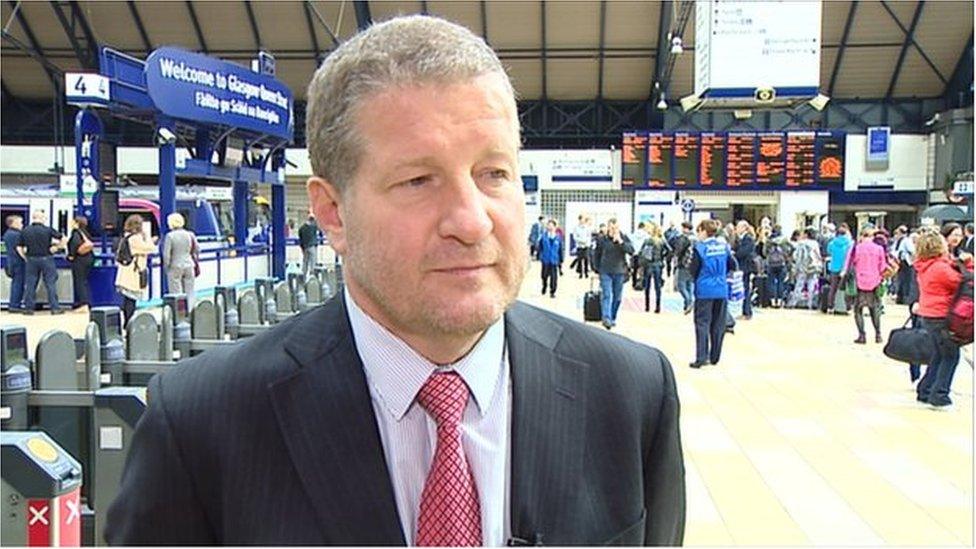
Phil Verster has been managing director of ScotRail during tumultuous times for the firm
ScotRail Alliance boss Phil Verster is leaving the firm after 18 months in which the company has rarely been out of the headlines.
ScotRail has come under the microscope repeatedly, with political debates centring around service disruptions and the government raising the possibility of the franchise contract being revoked.
However, the firm also delivered a series of infrastructure improvements, and improvements in service performance were announced the week before Mr Verster's departure became public.
Here is a timeline of the ups and downs of Abellio's time in Scotland so far and Mr Verster's time in the role.

14 October 2014: Abellio wins the ScotRail franchise contract, taking over from Aberdeen-based FirstGroup. The firm wins a 10-year contract, but could be stripped of it in half that time if punctuality targets are not met.
1 April 2015: Abellio formally takes over the running of Scotland's railways.
25 March 2015: Phil Verster is announced as the managing director of ScotRail Alliance, which sees Abellio and Network Rail team up, external to deliver rail services.
He takes up the job in May.
13 June 2015: Work begins on improvements to the main Edinburgh-Glasgow line, with the Winchburgh tunnel in West Lothian closed for six weeks.
6 September 2015: The new Borders Railway is opened at a cost of £249m, bringing train services back to the Scottish borders for the first time in 46 years.
17 September 2015: ScotRail announces plans to hire up to 100 new train drivers.
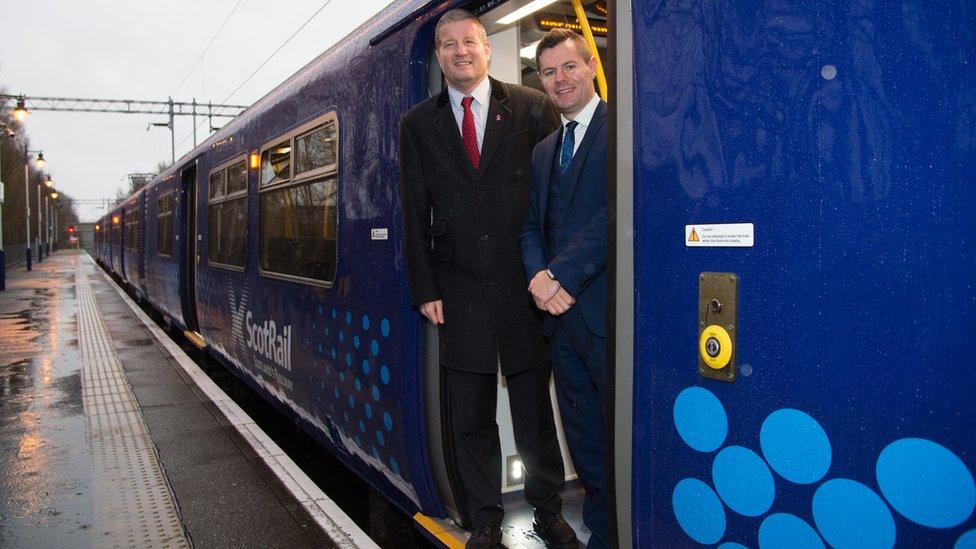
Mr Verster with then-Transport Minister Derek Mackay in December 2015, announcing a £475m improvement plan
6 November 2015: ScotRail is fined £265,282 for failing to meet standards for trains and stations.
21 December 2015: ScotRail announces a £475m improvement plan, pledging new trains, thousands of extra seats and better on-board wifi.
Mr Verster describes the plan as the biggest improvement programme in the company's history, saying 75% of trains will be refurbished or replaced.

2016
15 March 2016: ScotRail pledges a "revolution" in travel for passengers in Tayside and Aberdeenshire, with 200 new services and 200,000 additional seats a day.
20 March 2016: The main tunnel serving Glasgow Queen Street station, the third busiest in Scotland, is closed for 20 weeks, causing major disruption to services.
ScotRail says the work is part of a £60m upgrade project to allow faster and longer trains to use the station.
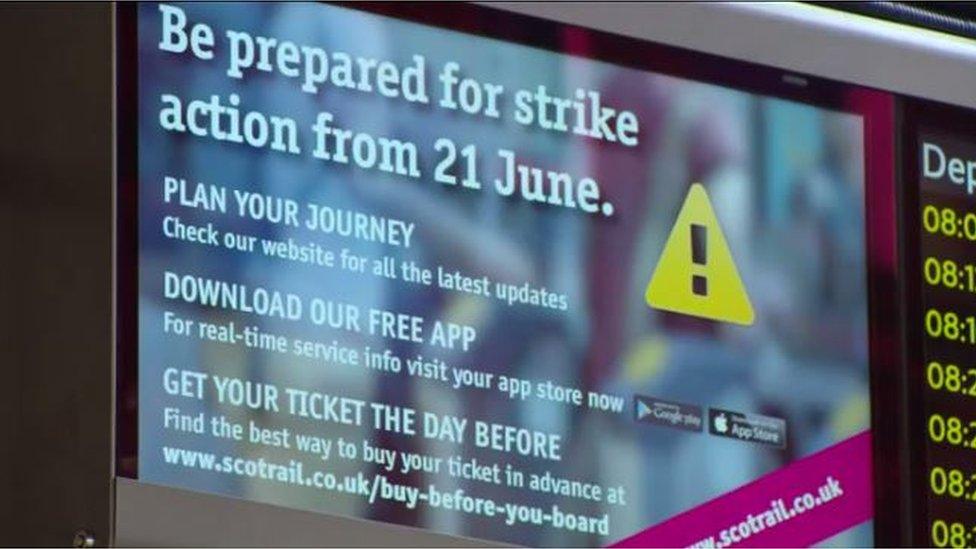
ScotRail staff went out on strike in June 2016
21 June 2016: ScotRail workers walk out on strike in a dispute over plans to operate more trains without guards.
The RMT union leads industrial action, with ScotRail estimating that about 30% of services are unable to run.
Mr Verster hits out at the "needless" strikes, saying they would "affect tens of thousands of passengers and hurt hundreds of rail staff".
3 August 2016: Mr Verster is "very pleased" as further planned strike action is called off.
6 October 2016: With criticism of services mounting, First Minister Nicola Sturgeon says she is "absolutely committed" to fixing problems, noting that it is "absolutely incumbent" on Abellio to meet expectations.
28 October 2016: ScotRail is fined £483,000 for failing to meet required standards for trains and stations.
9 November 2016: Rail unions stage protests calling for a publicly-owned service.
17 November 2016: Nicola Sturgeon is forced to apologise to rail passengers after a broken-down train in Edinburgh causes severe disruption.
She notes that "there are options for the contract to be broken early, and we will keep that option under review".
Rail unions subsequently call for the resignation of Transport Minister Humza Yousaf, who refuses to quit.
Humza Yousaf: "Passengers want to see action now to strengthen the reliability of the rail infrastructure across the network."
20 November 2016: Mr Yousaf invites unions and political parties to hold talks on setting up a public sector train operator, noting that Abellio's contract could be cancelled in 2020.
23 November 2016: Mr Yousaf makes an emergency statement at Holyrood about the recent disruption, insisting that "ScotRail has learned lessons".
On the same day, commuters face further disruption after overhead wiring problems affect services in Glasgow.
24 November 2016: Ms Sturgeon says she will consider freezing rail fares in 2017 in response to the ongoing concerns over services. Ultimately fares are not frozen.
29 November 2016: A major improvement plan for ScotRail is published, with Mr Yousaf demanding "immediate improvement" for passengers.
The plan includes measures to improve punctuality and reliability through a series of local and nationwide programmes, from infrastructure developments to "performance workshops" for managers and staff about running services on time.
11 December 2016: ScotRail unveils the first in its fleet of new electric trains, which Mr Verster welcomes as "a visible symbol of our ongoing massive rail investment".
16 December 2016: The Scottish government announces a £3m package of "targeted discounts" for regular rail passengers to compensate for recent disruption.

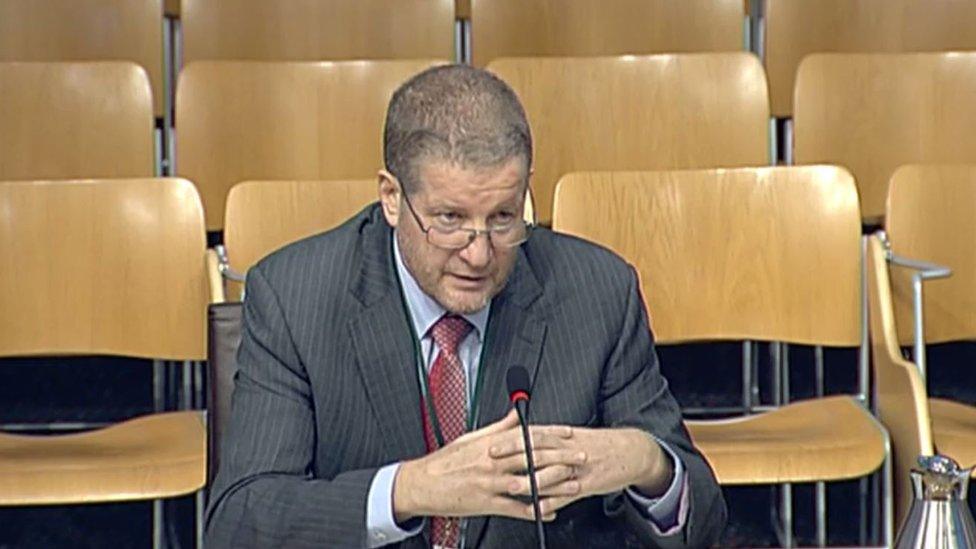
ScotRail boss Phil Verster told MSPs he couldn't vouch for the Scottish government's discount scheme
2017
2 January 2017: Rail fares increase across the UK.
8 January 2017: The Sunday Post newspaper reveals, external that Mr Verster received taxpayer money to cover his rent for a year as part of a relocation package.
12 January 2017: "Big improvements" in ScotRail's performance are recorded in the aftermath of the improvement plan being published.
18 January 2017: Mr Verster tells MSPs he "can't vouch" for the discount scheme going ahead, with the government apparently demanding ScotRail pay for it.
20 January 2017: Mr Verster leaves ScotRail to take up a new job in England.
- Published20 January 2017
